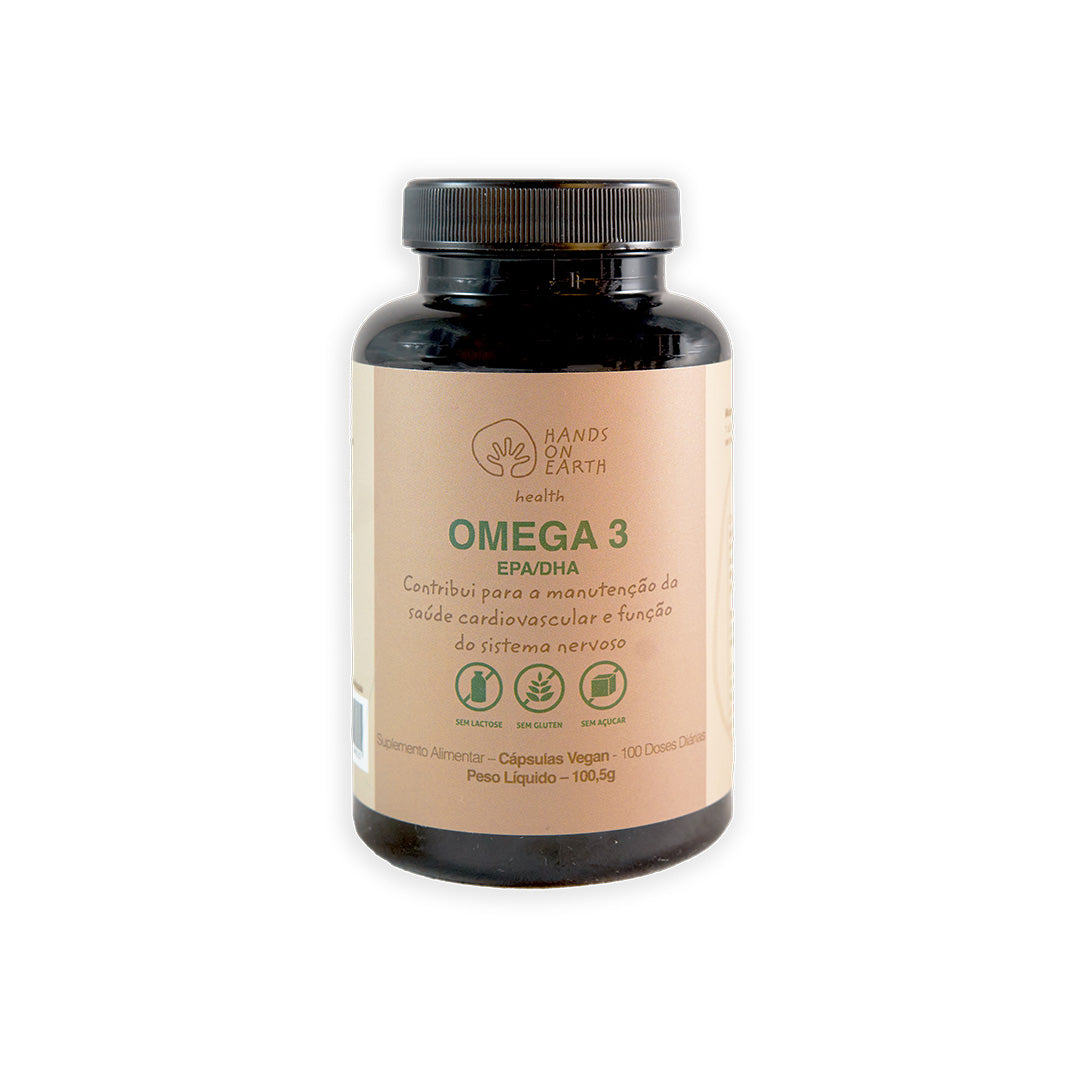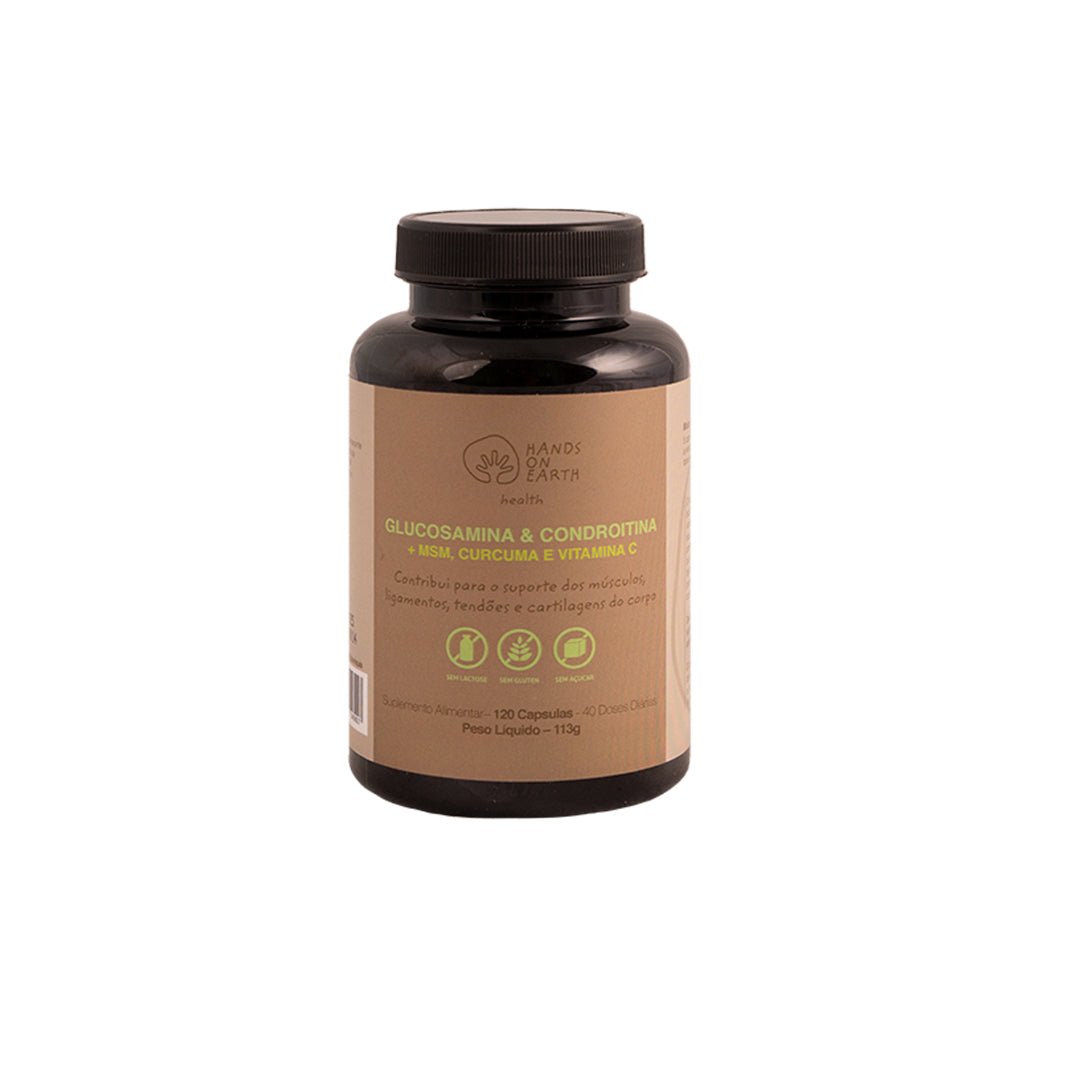Omega-3 fatty acids, often referred to as Omega-3s, are a type of polyunsaturated fats that play crucial roles in the body. Our body cannot produce enough Omega-3s, therefore Omega-3 fatty acids are considered essential nutrients, which means we have to obtain them from the foods we consume (1).
2. What are Fatty Acids?
Fatty acids are molecular compounds made up of carbon, oxygen and hydrogen atoms arranged in a chain-like structure. Carbon atoms serve as the central backbone of this chain, while oxygen and hydrogen atoms bond at specific positions along it.
There are two main categories of fatty acids: saturated fat and unsaturated fat. Unsaturated fat is further divided into polyunsaturated fat and monounsaturated fat, terms commonly found on nutrition labels. In a saturated fat molecule, there are no vacant positions along the carbon chain.
In contrast, a monounsaturated fat has an open position, and a polyunsaturated fat has multiple spaces available. Saturated fats are sometimes labeled "bad" or "unhealthy" fats because they are associated with a higher risk of certain diseases, such as heart disease and stroke. On the other hand, unsaturated fats, encompassing both polyunsaturated and monounsaturated fats, are considered "good" or "healthy" fats when consumed in moderation. Omega-3s, which fall into the polyunsaturated fat category, represent a healthier dietary choice compared to saturated fats, benefiting heart health (2).
3. What types of Omega-3 Fatty Acids are there?
There are three main types of Omega-3 fatty acids, each with its own unique characteristics:
- EPA (eicosapentaenoic acid): EPA is categorized as a "marine Omega-3" as it is mainly present in fish.
- DHA (docosahexaenoic acid): Similar to EPA, DHA is another marine Omega-3 fatty acid predominantly found in fish.
- ALA (alpha-linolenic acid): ALA represents the plant form of Omega-3 and is derived from several plant sources.
Omega-3 fatty acids are essential nutrients that the body acquires through dietary intake. Although the body can convert some ALA to EPA and subsequently DHA, this conversion process only produces a limited amount of EPA and DHA. Therefore, it remains crucial to incorporate dietary sources of EPA and DHA, such as fish, into nutrition to ensure adequate intake of these essential compounds (3,4).
4. What are the health benefits of Omega-3 Fatty Acids?
Omega-3 fatty acids play a crucial role in facilitating the proper functioning of all cells in the body (5). They serve as integral components of cell membranes, providing structural support and facilitating interactions between cells. Although Omega-3s are vital to all cells, they are particularly concentrated at high levels within cells located in both the eyes and brain (6).
Studies show that Omega-3s may be beneficial in:
- Reduced Cardiovascular Risk : Recent clinical studies suggest that Omega-3s result in a 28% reduced risk of heart attack, 50% reduced risk of fatal heart attack, and 17% reduced risk of coronary heart disease (7,8,9 ,10). A meta-analysis of the use of Omega-3s for the prevention of cardiovascular disease showed a statistically significant reduction in mortality due to cardiovascular problems (11). Recent studies also show that the Omega-3 index is a more sensitive predictor of increased risk of cardiovascular disease than serum cholesterol (12,13).
- Reducing Autoimmunity: Omega-3 fatty acids have demonstrated potential in both the treatment and prevention of several autoimmune conditions, such as type 1 diabetes, rheumatoid arthritis, ulcerative colitis, Crohn's disease, and psoriasis (14,15).
- Preventing Cognitive Decline: Multiple studies have established a connection between increased Omega-3 intake and a lower risk of age-related cognitive decline, as well as a lower likelihood of developing Alzheimer's disease (16,17).
- Reduction of Certain Types of Cancer: Consuming Omega-3 has the potential to reduce the risk of specific types of cancer, such as colon, prostate and breast cancer; however, more studies are needed to corroborate these results (18,19).
- Reducing Joint Pain and Inflammation : Based on a review of six studies, Omega-3 supplements were found to have a remarkable ability to reduce pain in individuals affected by osteoarthritis that affects synovial joints (20).
- Supports Skin and Eye Health : DHA serves as a structural component in the skin and retina of the eye, playing a crucial role in maintaining the well-being of cell membranes. On the skin, it protects against premature aging, reduces the risk of acne and promotes skin hydration (21). In the eyes, Omega-3 is also linked to a lower risk of macular degeneration (22).
- Reducing General Body Inflammation: Chronic inflammation can be a contributing factor to the development of numerous chronic diseases, including heart disease and cancer. Omega-3 fatty acids can decrease the production of molecules and substances associated with inflammation (23,24).
5. What are the food sources of Omega-3 Fatty Acids?
Fish is the best source of omega-3s (EPA and DHA): mackerel, salmon (wild, farmed, Atlantic), herring (Atlantic), anchovies, white fish, tuna, halibut, sardines (Atlantic, canned in oil) and trout (wild). This list of fish includes fish with low levels of mercury, therefore, with less risk of developing mercury poisoning. If a person is allergic to fish or follows a vegetarian or vegan diet, the alternative is to consume plant-based sources of Omega-3 (DHA or ALA). The plant source of DHA is through the consumption of algae. One of the best sources of ALA is crushed flaxseed. Other sources include algae oil, canola oil, chia seeds, edamame, soybean oil, and walnuts (25).
6. Who should take Omega-3 Fatty Acid supplements?
This supplement is recommended for individuals who want to:
- Reduce your cardiovascular risk
- Reduce the risk of certain types of cancer (colon, prostate and breast cancer)
- Help improve joint, eye and skin health
- Help cognitive function
- Reduce the inflammatory state of the body as a whole
- Reduce the severity of autoimmune diseases
The appropriate dosage of Omega-3 fatty acids can actually vary based on specific health goals and underlying conditions. To reduce general inflammation throughout the body, higher doses in the range of 3 to 6 grams of EPA/DHA per day are typically recommended. However, when the goal is the prevention of cardiovascular disease, lower doses in the range of 1 to 3 grams of EPA/DHA per day are generally considered sufficient. It is important for individuals to consult a healthcare professional or nutritionist to determine the most appropriate Omega-3 dosage based on their individual needs and circumstances (26).
8. What are the side effects of taking Omega-3 Fatty Acids ?
Serious adverse reactions to fish oil or EPA and DHA supplements are uncommon. The most common adverse effects are mild and include a fishy taste in the mouth, heartburn and, in some cases, nausea and loose stools or diarrhea. These side effects are generally mild and often disappear with continued use or when taking the supplements with meals (25).
Omega-3 fatty acids, especially EPA and DHA, can have a mild anticoagulant effect, which means they can potentially prolong bleeding times, especially when taken in high daily doses (>6g/day). This property may contribute to its cardioprotective effects. However, recent studies have shown no impact of consuming fish oil supplements and increased risk of bleeding (27,28,29,30). Omega-3 dietary supplements, such as fish oil, have the potential to interact with medications, especially blood thinners (blood thinners), antiplatelet medications, and nonsteroidal anti-inflammatory drugs (NSAIDs). People taking these medications should consult their doctor before adding fish oil supplements to their routine.
9. Can pregnant and breastfeeding women take this supplement?
Some studies suggest that adequate Omega-3 intake during pregnancy is associated with several benefits for offspring, including better cognitive development, better communication and social skills, fewer behavioral problems, and a lower risk of developmental delays (28,29). . It is important to note that while some studies support these associations, there are also mixed results in the research, indicating that further investigation is needed to fully understand the precise impact of Omega-3 supplementation during pregnancy and early childhood on child development. We recommend that you consult a doctor before using this product.
REFERENCES
- S. Department of Health and Human Services, National Institutes of Health, Office of Dietary Supplements. Omega-3 fatty acids. https://ods.od.nih.gov/factsheets/Omega3FattyAcids-HealthProfessional/.
- Jones PJH, Rideout T. Lipids, sterols, and their metabolites. In: Ross AC, Caballero B, Cousins RJ, Tucker KL, Ziegler TR, eds. Modern Nutrition in Health and Disease. 11th ed. Baltimore, MD: Lippincott Williams & Wilkins; 2014.
- Burdge GC, Jones AE, Wootton SA. Eicosapentaenoic and docosapentaenoic acids are the principal products of α-linolenic acid metabolism in young men. Br J Nutr. 2002;88(4):355-364.
- Burdge GC, Wootton SA. Conversion of α-linolenic acid to eicosapentaenoic, docosapentaenoic and docosahexaenoic acids in young women. Br J Nutr. 2002;88(4):411-420.
- Institute of Medicine, Food and Nutrition Board. Dietary reference intakes for energy, carbohydrate, fiber, fat, fatty acids, cholesterol, protein, and amino acids (macronutrients). Washington, DC: National Academy Press; 2005.
- SanGiovanni JP, Chew EY. The role of omega-3 long-chain polyunsaturated fatty acids in health and disease of the retina. Prog Retin Eye Res 2005;24:87-138.
- Kris-Etherton PM, Richter CK, Bowen KJ, Harris WS, et al. Recent Clinical Trials Shed New Light on the Cardiovascular Benefits of Omega-3 Fatty Acids. Methodist Debakey Cardiovasc J. 2019;15(3):171–178. doi:10.14797/mdcj-15-3-171
- Manson JE, Cook NR, Lee IM, et al. Marine n-3 Fatty Acids and Prevention of Cardiovascular Disease and Cancer. N Engl J Med. 2019;380(1):23–32. doi:10.1056/NEJMoa1811403
- Bowman L, Mafham M, Wallendszus K et al. ASCEND Study Collaborative. Effects of n-3 Fatty Acid Supplements in Diabetes Mellitus. N Engl J Med. 2018 Oct 18;379(16):1540–1550. doi: 10.1056/NEJMoa1804989.
- Bhatt DL, Steg PG, Miller M, Brinton EA, Jacobson TA, et al. REDUCE-IT Investigators. Cardiovascular Risk Reduction with Icosapent Ethyl for Hypertriglyceridemia. N Engl J Med. 2019 Jan 3;380(1):11-22. doi:10.1056/NEJMoa1812792.
- Cabiddu MF, Russi A, Appolloni L, Mengato D, Chiumente M. Omega-3 for the prevention of cardiovascular diseases: meta-analysis and trial-sequential analysis. Eur J Hosp Pharm. 2020 Jun 16:ejhpharm-2020-002207. doi: 10.1136/ejhpharm-2020-002207
- Harris WS. Omega-3 fatty acids and cardiovascular disease: a case for omega-3 index as a new risk factor. Pharmacol Res. 2007;55(3):217–223. doi:10.1016/j.phrs.2007.01.013
- Von Schacky C. Use of red blood cell fatty-acid profiles as biomarkers in cardiac disease. Biomark Med. 2009;3(1):25–32. doi:10.2217/17520363.3.1.25
- Duarte-García A, Myasoedova E, Karmacharya P, Hocaoğlu M, Murad MH, Warrington KJ, Crowson CS. Effect of omega-3 fatty acids on systemic lupus erythematosus disease activity: A systematic review and meta-analysis. Autoimmun Rev. 2020 Dec;19(12):102688. doi: 10.1016/j.autrev.2020.102688. Epub 2020 Oct 22. PMID: 33131703.
- Kostoglou-Athanassiou I, Athanassiou L, Athanassiou P. The Effect of Omega-3 Fatty Acids on Rheumatoid Arthritis. Mediterr J Rheumatol. 2020 Jun 30;31(2):190-194. doi: 10.31138/mjr.31.2.190. PMID: 32676556; PMCID: PMC7362115.
- Martí Del Moral A, Fortique F. Omega-3 fatty acids and cognitive decline: a systematic review. Nutr Hosp. 2019 Aug 26;36(4):939-949. English. doi: 10.20960/nh.02496. PMID: 31215788.
- Wood AHR, Chappell HF, Zulyniak MA. Dietary and supplemental long-chain omega-3 fatty acids as moderators of cognitive impairment and Alzheimer's disease. Eur J Nutr. 2022 Mar;61(2):589-604. doi: 10.1007/s00394-021-02655-4. Epub 2021 Aug 15. PMID: 34392394; PMCID: PMC8854294.
- Theodoratou E, McNeill G, Cetnarskyj R, Farrington SM, Tenesa A, Barnetson R, Porteous M, Dunlop M, Campbell H. Dietary fatty acids and colorectal cancer: a case-control study. Am J Epidemiol. 2007 Jul 15;166(2):181-95. doi: 10.1093/aje/kwm063. Epub 2007 May 9. PMID: 17493949.
- Terry PD, Terry JB, Rohan TE. Long-chain (n-3) fatty acid intake and risk of cancers of the breast and the prostate: recent epidemiological studies, biological mechanisms, and directions for future research. J Nutr. 2004 Dec;134(12 Suppl):3412S-3420S. doi: 10.1093/jn/134.12.3412S. PMID: 15570047.
- Bahamondes MA, Valdés C, Moncada G. Effect of omega-3 on painful symptoms of patients with osteoarthritis of the synovial joints: systematic review and meta-analysis. Oral Surg Oral Med Oral Pathol Oral Radiol. 2021 Sep;132(3):297-306. doi: 10.1016/j.oooo.2021.01.020. Epub 2021 Feb 5. PMID: 34303654.
- Thomsen BJ, Chow EY, Sapijaszko MJ. The Potential Uses of Omega-3 Fatty Acids in Dermatology: A Review. Journal of Cutaneous Medicine and Surgery. 2020;24(5):481-494. doi:1177/1203475420929925
- Jiang H, Shi X, Fan Y, Wang D, Li B, Zhou J, Pei C, Ma L. Dietary omega-3 polyunsaturated fatty acids and fish intake and risk of age-related macular degeneration. Clin Nutr. 2021 Dec;40(12):5662-5673. doi: 10.1016/j.clnu.2021.10.005. Epub 2021 Oct 12. PMID: 34749130.
- Kavyani Z, Musazadeh V, Fathi S, Hossein Faghfouri A, Dehghan P, Sarmadi B. Efficacy of the omega-3 fatty acids supplementation on inflammatory biomarkers: An umbrella meta-analysis. Int Immunopharmacol. 2022 Oct;111:109104. doi: 10.1016/j.intimp.2022.109104. Epub 2022 Jul 30. PMID: 35914448.
- Guo Y, Ma B, Li X, Hui H, Zhou Y, Li N, Xie X. Omega-3 Polyunsaturated Fatty Acids can Reduce IL-6 and TNF Levels in Patients with Cancer. Br J Nutr. 2022 Mar 7:1-34. doi: 10.1017/S0007114522000575. Epub ahead of print. PMID: 35249562.
- Oregon State University, Linus Pauling Institute, Micronutrient Information Center. Essential fatty acids. https://lpi.oregonstate.edu/mic/other-nutrients/essential-fattyacids#introduction.
- Simopoulos AP. The importance of the omega-6/omega-3 fatty acid ratio in cardiovascular disease and other chronic diseases. Exp Biol Med (Maywood). 2008 Jun;233(6):674-88. doi: 10.3181/0711-MR-311. Epub 2008 Apr 11. PMID: 18408140.
- Begtrup KM, Krag AE, Hvas AM. No impact of fish oil supplements on bleeding risk: a systematic review. Dan Med J. 2017 May;64(5):A5366. PMID: 28552094.
- Akintoye E, Sethi P, Harris WS, Thompson PA, Marchioli R, Tavazzi L, Latini R, Pretorius M, Brown NJ, Libby P, Mozaffarian D. Fish Oil and Perioperative Bleeding. Circ Cardiovasc
Qual Outcomes. 2018 Nov;11(11):e004584. doi: 10.1161/CIRCOUTCOMES.118.004584. - Carr JA. Role of Fish Oil in Post-Cardiotomy Bleeding: A Summary of the Basic Science
and Clinical Trials. Ann Thorac Surg. 2018 May;105(5):1563-1567. doi:
1016/j.athoracsur.2018.01.041. - Harris WS. Expert opinion: omega-3 fatty acids and bleeding-cause for concern? Am J
2007 Mar 19;99(6A):44C-46C. doi: 10.1016/j.amjcard.2006.11.021. - Sass L, Bjarnadóttir E, Stokholm J, Chawes B, Vinding RK, Mora-Jensen AC, Thorsen J, Noergaard S, Ebdrup BH, Jepsen JRM, Fagerlund B, Bønnelykke K, Lauritzen L, Bisgaard H. Fish Oil Supplementation in Pregnancy and Neurodevelopment in Childhood-A Randomized Clinical Trial. Child Dev. 2021 Jul;92(4):1624-1635. doi: 10.1111/cdev.13541. Epub 2021 Jan 28. PMID: 33506965.
- Zou R, El Marroun H, Voortman T, Hillegers M, White T, Tiemeier H. Maternal polyunsaturated fatty acids during pregnancy and offspring brain development in childhood. Am J Clin Nutr. 2021 Jul 1;114(1):124-133. doi: 10.1093/ajcn/nqab049. PMID: 33742211.





Leave a comment
This site is protected by hCaptcha and the hCaptcha Privacy Policy and Terms of Service apply.